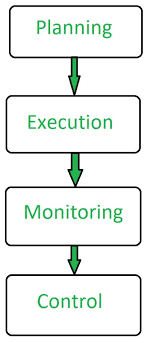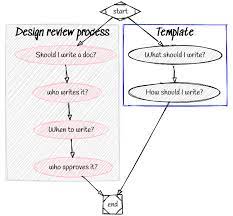Maximizing Efficiency: Leveraging the Power of Outsourcing Developers
The Benefits of Outsourcing Developers
Outsourcing developers has become a popular trend in the tech industry, and for good reason. Many businesses are turning to outsourcing as a cost-effective and efficient way to access top talent and scale their development projects. Here are some key benefits of outsourcing developers:
Access to Global Talent Pool
By outsourcing developers, businesses can tap into a global talent pool with diverse skills and expertise. This allows companies to find the right developers for their specific project requirements, regardless of geographical limitations.
Cost Savings
Outsourcing developers can result in significant cost savings for businesses. By hiring developers from countries with lower labor costs, companies can reduce expenses while still maintaining high-quality work.
Faster Time-to-Market
Outsourcing developers can help accelerate the development process and bring products to market faster. With a dedicated team of skilled developers working on the project, businesses can meet tight deadlines and stay ahead of competitors.
Scalability
Outsourcing developers provides businesses with the flexibility to scale their development teams up or down based on project requirements. This scalability allows companies to adapt quickly to changing needs without the hassle of hiring or laying off permanent employees.
Focus on Core Business Activities
By outsourcing development tasks, businesses can free up internal resources to focus on core activities that drive growth and innovation. Outsourcing allows companies to delegate non-core functions to experts while maintaining their strategic focus.
Risk Mitigation
Outsourcing developers can help mitigate risks associated with in-house development projects. By partnering with experienced outsourcing providers, businesses can benefit from industry best practices, quality assurance processes, and risk management strategies.
In conclusion, outsourcing developers offers numerous benefits for businesses looking to streamline their development processes, reduce costs, and access top talent. With the right outsourcing partner, companies can achieve greater efficiency and success in their software development initiatives.
9 Key Advantages of Outsourcing Developers for Business Growth
- Access to a global talent pool
- Cost savings due to lower labor costs in some regions
- Ability to scale development teams up or down easily
- Faster time-to-market for products and projects
- Focus on core business activities by delegating non-core tasks
- Access to specialized expertise and skills not available in-house
- Increased flexibility to adapt to changing project requirements
- Risk mitigation through industry best practices and quality assurance processes
- Enhanced innovation and creativity through collaboration with diverse developers
Key Challenges of Outsourcing Developers: Communication, Quality Control, and Security Risks
- Communication challenges due to time zone differences and language barriers can hinder project collaboration.
- Quality control may be more difficult when working with external developers who are not directly part of the company.
- Security concerns may arise when sharing sensitive information and intellectual property with outsourced developers.
Access to a global talent pool
Access to a global talent pool is a significant advantage of outsourcing developers. By leveraging talent from around the world, businesses can access a diverse range of skills and expertise that may not be readily available locally. This allows companies to find developers with the specific knowledge and experience needed for their projects, ultimately leading to higher quality work and innovative solutions. Additionally, tapping into a global talent pool provides businesses with the opportunity to work with developers who bring unique perspectives and fresh ideas to the table, enhancing creativity and problem-solving capabilities within the team.
Cost savings due to lower labor costs in some regions
Outsourcing developers can lead to significant cost savings for businesses due to lower labor costs in some regions. By hiring developers from countries with more affordable wages, companies can achieve cost efficiencies without compromising on the quality of work. This financial advantage allows businesses to allocate their resources strategically, invest in other areas of growth, and ultimately enhance their competitive edge in the market.
Ability to scale development teams up or down easily
One key advantage of outsourcing developers is the ability to scale development teams up or down easily based on project requirements. This flexibility allows businesses to quickly adjust the size of their development team to meet changing needs without the constraints of hiring or laying off permanent employees. By leveraging outsourced talent, companies can efficiently manage resources and ensure that they have the right team size for each stage of their project, ultimately enhancing productivity and cost-effectiveness.
Faster time-to-market for products and projects
Outsourcing developers can significantly contribute to faster time-to-market for products and projects. By leveraging the expertise of external developers, businesses can streamline their development processes, increase productivity, and accelerate project timelines. With a dedicated team of experienced developers working on the project, companies can meet tight deadlines, respond quickly to market demands, and gain a competitive edge by launching their products or projects ahead of schedule. This pro of outsourcing developers not only speeds up the delivery of solutions but also allows businesses to capitalize on market opportunities more efficiently.
Focus on core business activities by delegating non-core tasks
By outsourcing developers, businesses can streamline their operations and enhance productivity by delegating non-core development tasks to external experts. This allows companies to redirect their internal resources and focus on core business activities such as strategic planning, customer engagement, and product innovation. By entrusting specialized tasks to outsourcing partners, organizations can optimize their workflow, improve efficiency, and ultimately drive growth while ensuring that development projects are handled by skilled professionals in a cost-effective manner.
Access to specialized expertise and skills not available in-house
Outsourcing developers provides businesses with access to specialized expertise and skills that may not be available in-house. By collaborating with external development teams, companies can leverage the knowledge and experience of professionals who specialize in niche areas or cutting-edge technologies. This access to specialized talent enables businesses to tackle complex projects, implement innovative solutions, and stay ahead of industry trends without the need for extensive internal training or hiring efforts.
Increased flexibility to adapt to changing project requirements
Outsourcing developers provides businesses with increased flexibility to adapt to changing project requirements. By having access to a pool of skilled developers who can be scaled up or down as needed, companies can easily adjust their development teams to meet evolving project demands. This flexibility allows businesses to respond swiftly to shifting priorities, market conditions, and customer needs without the constraints of maintaining a fixed in-house team size. Ultimately, outsourcing developers enables companies to stay agile and responsive in today’s dynamic business environment.
Risk mitigation through industry best practices and quality assurance processes
Outsourcing developers can effectively mitigate risks through the implementation of industry best practices and stringent quality assurance processes. By partnering with experienced outsourcing providers, businesses can benefit from the expertise and proven methodologies that ensure the delivery of high-quality software solutions. These established practices help minimize errors, enhance project efficiency, and ultimately reduce the likelihood of costly setbacks or project failures. Overall, leveraging industry best practices and quality assurance processes through outsourcing developers offers companies a reliable approach to managing risks and ensuring successful project outcomes.
Enhanced innovation and creativity through collaboration with diverse developers
Collaborating with diverse developers through outsourcing can greatly enhance innovation and creativity within a project. By bringing together individuals with different backgrounds, perspectives, and skill sets, businesses can benefit from a rich exchange of ideas and approaches. This diversity fosters a culture of creativity, encouraging fresh thinking and unique solutions to complex problems. Through collaboration with diverse developers, companies can push the boundaries of traditional thinking and drive innovation forward in exciting new directions.
Communication challenges due to time zone differences and language barriers can hinder project collaboration.
Communication challenges arising from time zone variances and language barriers are significant drawbacks of outsourcing developers. Coordinating project tasks and maintaining effective collaboration become more complex when team members are spread across different time zones, leading to delays in decision-making and progress updates. Additionally, language barriers can impede clear communication, causing misunderstandings and potentially impacting the quality of work delivered. Overcoming these obstacles requires proactive communication strategies and tools to bridge the gaps and ensure seamless project coordination.
Quality control may be more difficult when working with external developers who are not directly part of the company.
When outsourcing developers, one significant con to consider is that quality control may be more challenging when working with external developers who are not directly part of the company. Ensuring consistent quality standards and aligning development practices with the company’s objectives can be more complex when dealing with a remote team. Communication barriers, cultural differences, and varying work processes may hinder effective quality control measures, leading to potential discrepancies in the final deliverables. It is crucial for businesses to establish clear communication channels and implement robust monitoring mechanisms to address this con effectively and maintain the desired level of quality in outsourced development projects.
Security concerns may arise when sharing sensitive information and intellectual property with outsourced developers.
Security concerns may arise when sharing sensitive information and intellectual property with outsourced developers. Companies must carefully consider the risks associated with data privacy and protection when engaging external developers. The potential for data breaches, unauthorized access, or intellectual property theft underscores the importance of implementing robust security measures and thorough vetting processes to safeguard confidential information during outsourcing partnerships.









